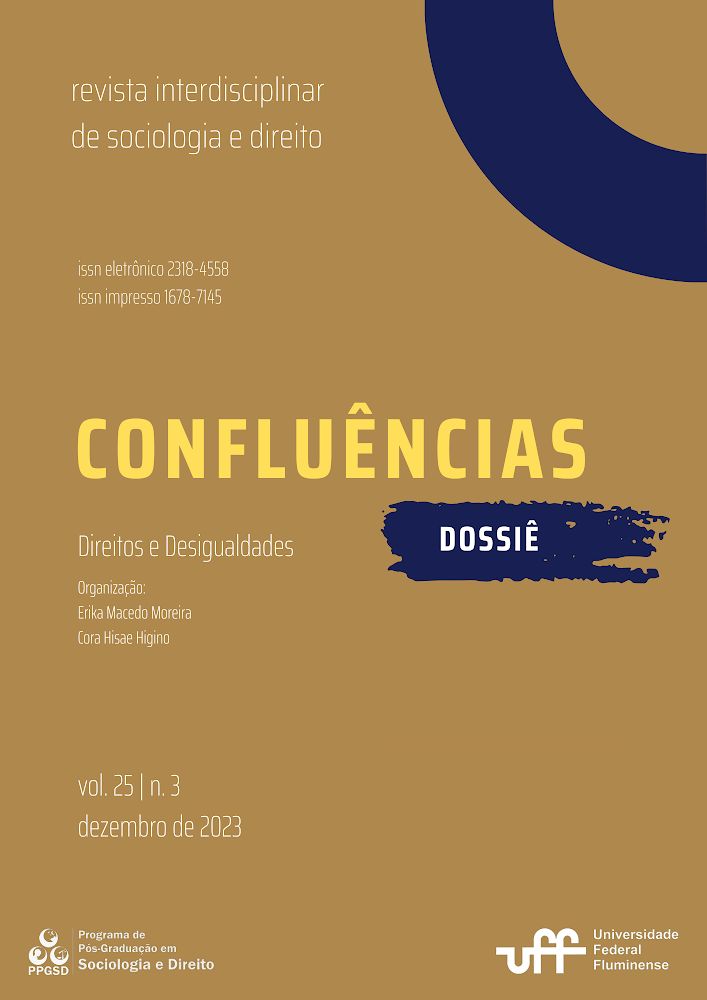A LEI DE REGULAÇÃO FUNDIÁRIA URBANA E A E ESPECULAÇÃO IMOBILIÁRIA
dificuldades frente à garantia do direito à moradia da população de baixa renda
DOI:
https://doi.org/10.22409/conflu.v25i3.59732Resumen
A presente pesquisa objetiva analisar se a regularização fundiária urbana, a partir da implementação da Lei nº 13.465 de 2017, é instrumento garantidor do direito à moradia para a população de baixa renda ou mecanismo que fomenta a ocorrência da especulação imobiliária. Para a elaboração deste trabalho, utilizou-se do método dedutivo, com procedimento monográfico e pesquisa bibliográfica e documental. Como resultados, tem-se que a regularização fundiária urbana, em especial a de interesse social, garante o direito à moradia à população de baixa renda. Isso ocorre porque a concessão da titularidade do imóvel ao possuidor proporciona a melhoria das novas áreas formalizadas, com a implementação de elementos necessários ao bem-estar dos moradores. Por outro lado, a regularização fundiária urbana fomenta a especulação imobiliária, pois esse instituto disponibiliza para o mercado imobiliário áreas que antes eram informais e não eram foco dos especuladores. Com isso, a população de baixa renda seria ainda mais segregada e prejudicada. Portanto, em resposta ao questionamento que norteou a pesquisa, pode-se afirmar que, apesar da regularização fundiária urbana colocar os novos imóveis regularizados no mercado imobiliário, oportunizando a especulação, ela proporciona moradia digna a famílias vulneráveis, o que favorece a manutenção do imóvel com estas pessoas, garantindo o seu bem-estar.
Descargas
Descargas
Publicado
Número
Sección
Licencia
Derechos de autor 2023 Marcelo Brito, Cyntia Mirella Cangussu Fernandes Sales, Bruno Lima Maciel

Esta obra está bajo una licencia internacional Creative Commons Atribución-NoComercial 4.0.
Os autores mantêm os direitos autorais e concedem à revista o direito de primeira publicação, com o trabalho simultaneamente licenciado sob a Licença Creative Commons Attribution que permite o compartilhamento do trabalho com reconhecimento da autoria e publicação inicial nesta revista. Têm autorização para assumir contratos adicionais separadamente, para distribuição não-exclusiva da versão do trabalho publicada nesta revista (ex.: publicar em repositório institucional ou como capítulo de livro), com reconhecimento de autoria e publicação inicial nesta revista. Possuem permissão e são estimulados a publicar e distribuir seu trabalho online (ex.: em repositórios institucionais ou na sua página pessoal) a qualquer ponto antes ou durante o processo editorial, já que isso pode gerar alterações produtivas, bem como aumentar o impacto e a citação do trabalho publicado.







